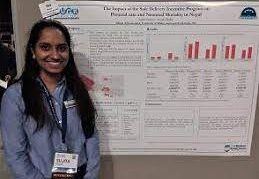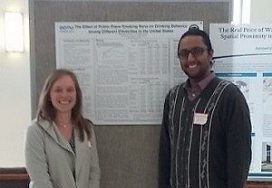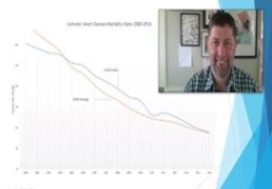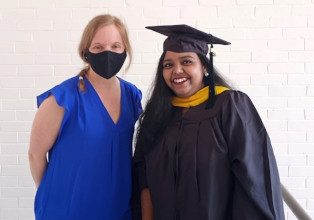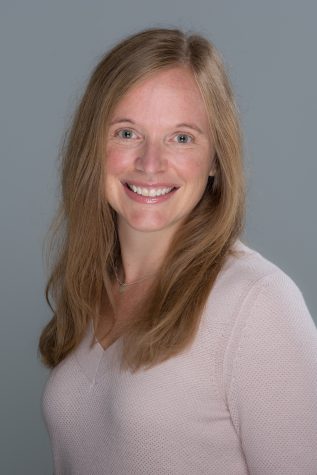
School of Economics
Other Affiliations at UMaine
Office: Winslow Hall, Room 307
Phone: 207.581.3159
Email: angela.daley@maine.edu
Education
Ph.D. Economics, Dalhousie University, 2016.
M.A. Economics, University of New Brunswick, Fredericton, 2008.
Diploma in University Teaching, University of New Brunswick, Fredericton, 2008.
B.B.A. Economics with Distinction, University of New Brunswick, Saint John, 2004.
Research Interests
As an applied microeconomist, I study economic well-being, health and the relationship between them. I am particularly interested in the role of policy in mitigating or exacerbating disparities. I characterize policy problems, and I evaluate the intended and unintended consequences of interventions.
My research focuses on individuals and families in rural and Arctic communities, Indigenous Peoples, those who endure poverty and/or economic insecurity, and other marginalized groups.
Selected Peer-Reviewed Publications
Refer to my Curriculum Vitae or Google Scholar for a complete list of peer-reviewed publications.
A decomposition of economic vulnerability among Indigenous and non-Indigenous adults in Canada. The Review of Income and Wealth, Forthcoming (with B. Watson).
From the Food Mail Program to Nutrition North Canada: The impact on food insecurity among Indigenous and non-Indigenous families with children. Canadian Journal of Economics, 2024 (with S. Pandey, S. Phipps and B. Watson).
The effects of recent minimum wage increases on self-reported health in the United States. Social Science & Medicine, 2022 (with L. Sigaud, J. Rubin and C. Noblet).
A breath of fresh air: The effect of public smoking bans on Indigenous youth. Health Economics, 2021 (with M. Rahman and B. Watson).
Blown off-course? Weight gain among the economically insecure during the great recession. Journal of Economic Psychology, 2020 (with B. Watson, N. Rohde and L. Osberg).
Literacy, numeracy, technology skill, and labour market outcomes among Indigenous Peoples in Canada. Canadian Public Policy, 2019 (with M. Hu and C. Warman).
Rural-urban differences in the decline of adolescent cigarette smoking. American Journal of Public Health, 2019 (with E.C. Ziller, J.D. Lenardson, N.C. Paluso and J.A. Talbot).
Selected Work in Progress
Dreaming of a brighter future? The impact of economic vulnerability on university aspirations (with B. Watson, N. Kong and S. Phipps).
Evaluating policies to improve food affordability, nutrition and food security in Canada’s remote Northern communities (with T. Galloway, N. Li and B. Watson).
Measuring the human dimensions of water insecurity in the Arctic: A narrative review (with K. Daley, K.P. Bell and S. Jain).
Public smoking bans and drinking behaviors: Impact by sex and race/ethnicity in the United States (with M. Rahman, P.M. Sarker and L. Sigaud).
The effects of a universal income transfer on food insecurity within households (with P.M. Sarker and J.G. Malacarne).
Teaching
I generally teach Principles of Microeconomics, Intermediate Microeconomic Theory, Health Economics and Senior Capstone.
When working with students, I embrace the best practices developed by the American Economic Association for Building a More Diverse, Inclusive, and Productive Profession (Bayer et al., 2019). In short, I strive to: build knowledge about economics and the variety of careers that are possible; ensure that course content is relevant to diverse students; use active learning and other inclusive teaching methods; foster a sense of belonging; and help students understand the learning process.
Bayer, A., Kalemli-Özcan, Ş., Pande, R., Rouse, C.E., Smith, A.A. Jr., Suárez Serrato, J.C. and Wilcox, D.W. (2019). Best Practices for Economists: Building a More Diverse, Inclusive, and Productive Profession. American Economic Association. https://www.aeaweb.org/resources/best-practices.
Advising
I actively advise undergraduate and graduate students at UMaine and other institutions. Students have presented their research at regional and international conferences, and we have collaborated on peer-reviewed publications. After graduation, students have pursued careers in the private and public sectors, as well as academia. Thesis-based graduate students for whom I served as chair are featured below.
